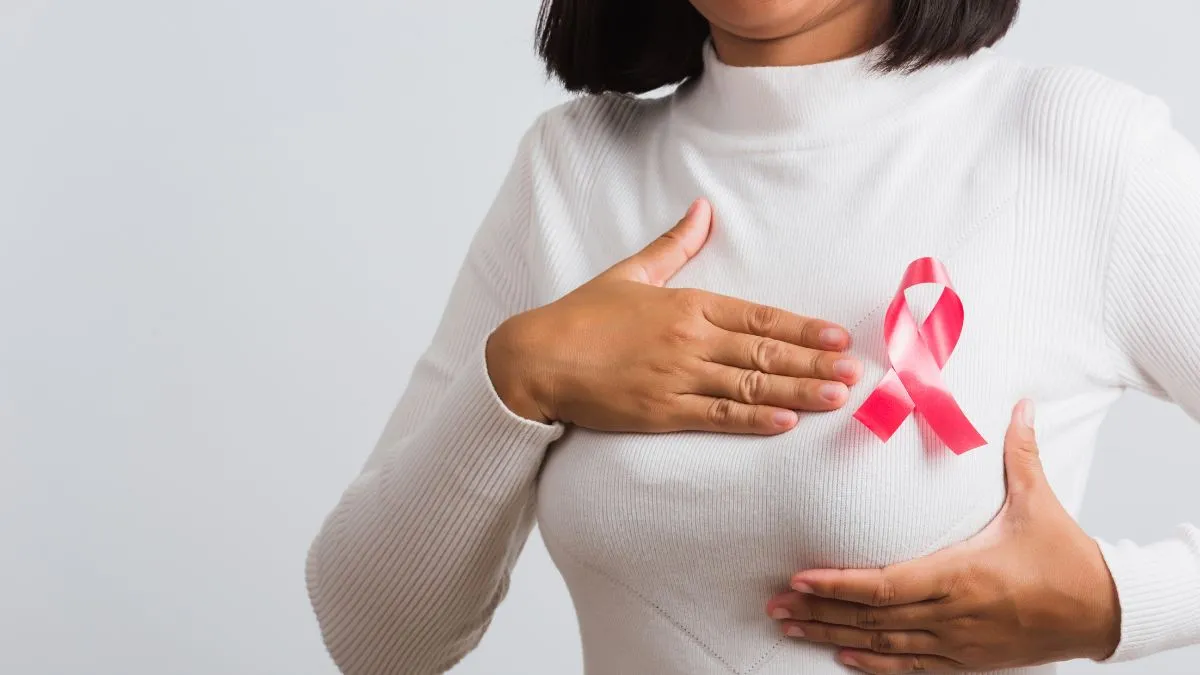- By Priyanka Munshi
- Fri, 18 Oct 2024 05:57 PM (IST)
- Source:JND
Regular breast cancer tests are extremely important for detecting early signs of this dangerous disease. Early detection significantly increases the chances of successful treatment and can prevent the cancer from spreading to other parts of the body. Several methods, such as mammograms, ultrasounds, and breast MRIs, can detect small tumors before they become serious. In some cases, additional tests like biopsies and genetic testing are also necessary. Identifying breast cancer at an early stage opens up various treatment options, including surgery, radiation, and chemotherapy. In a conversation with Jagran English, Dr. Neemesh Lodh, a Breast Surgical Oncologist at AIMS Hospital in Dombivli, discussed Breast Cancer Awareness Month 2024 and the importance of tests for early detection.
As breast cancer cases continue to rise, the significance of early detection becomes increasingly crucial. Regular check-ups and screenings can identify potential issues associated with breast cancer early on, leading to better treatment outcomes. According to Dr. Lodh, breast cancer often begins in the cells lining the ducts or lobules in the breast. Although it can affect anyone, it is more common in women than in men. If breast cancer is not detected early, it can spread to other parts of the body, making treatment more challenging and reducing the chances of positive outcomes and recovery. This is why detecting breast cancer early, before it starts to grow, is essential for improving treatment results and the patient’s quality of life. Regular check-ups and screenings at least once a year are recommended.
Also Read: Can Genetic Testing Help In Identifying Arthritis Risk? Doctor Explains
Tests for Early Detection of Breast Cancer
Breast Self-Examination (BSE): Considered one of the most effective tools for detecting breast cancer, BSE allows women to examine the shape and size of their breasts to look for any abnormalities or swelling. While not a complete replacement for other breast cancer screenings, it can still be helpful for early detection by noticing sudden changes in the breast, such as swelling, dimpling of the skin, or lumps.
Mammogram: A mammogram is an X-ray of the breast and is the most common tool for early breast cancer detection. It helps identify any abnormalities or changes in the breast tissue, making it an effective screening method.
Biopsy: A biopsy is one of the most reliable tests for diagnosing breast cancer. It involves taking a small sample of breast tissue for clinical testing to confirm the presence of cancer cells when there is uncertainty.
Genetic Testing: Since breast cancer can be hereditary, individuals with a family history of the disease may be at a higher risk. Undergoing genetic tests, such as BRCA1 and BRCA2 mutation testing, can help detect cancer risks early, leading to prompt diagnosis and preventive measures.

